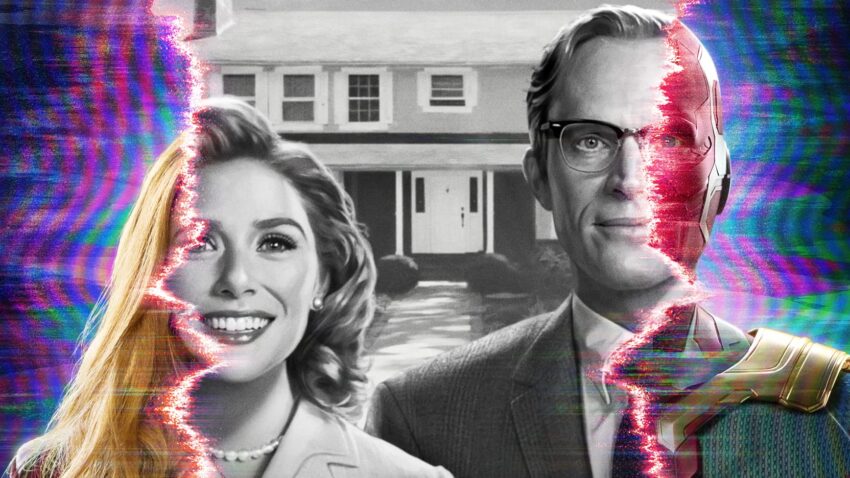At this point, you’ve probably heard the complaints around modern protagonists and characters in general. Most characters seem to be on a grayscale morally — they make decisions typically only reserved for villains. They have been described as morally broken. Many have complained that there are so few examples of good morality in modern storytelling.
But the same people who decry the corruption of these protagonists also complain about the arrogant righteousness of other protagonists — the unrealistically perfect “Mary Sues” that plague many stories today.
With just this context, modern reviewers seem to be the problem. They claim on the one hand that they need an example of good morality in storytelling, and then turn around and complain about the good examples that they do have, calling them “Mary Sues.”
But the truth is a little more complicated than this simplistic understanding. And as usual, Marvel provides an awesome example of a corrupted protagonist. While we don’t have time to tackle Mary Sues fully in this article, the television series WandaVision may be able to answer some of our questions surrounding just how moral our protagonists should be.
WandaVision
WandaVision is a television mini-series following Wanda Maximof (or Scarlet Witch) and her presumed-dead husband, Vision, after the events of Endgame. Unlike the previous installments of the Marvel Cinematic Universe (or MCU), WandaVision is set up like a sitcom, with each episode featuring the ageless cast in a different decade, although their surroundings and characters remain the same.
Wanda and Vision move into their own house, have twin boys, and begin raising their children throughout the idyllic life that seems disconnected from the rest of reality and even the rest of the MCU. But the thin veil protecting their sitcom existence from the real world begins to slip, and toward the end of the series the truth comes out.
Wanda, grieving the loss of Vision just weeks after the conclusion of the events of Endgame, went to visit the small town WestView, where she and Vision had bought a house and planned to start their married life together. At the threshold of their dream home, picturing the life they’d planned that could never come to be, she sent out a wave of magic that began recreating the world they’d imagined together, trapping an entire town in a fantasy where Vision comes back to life and their plans come true, setting the stage for the rest of the series.
Corrupted Protagonists
I’ve talked on the blog before about my favorite character in the MCU, Peggy Carter. But she wasn’t always my favorite. When I was younger and movies like Age of Ultron and Civil War were just coming out, Wanda Maximoff was my favorite. I loved her epic powers, her relationship with her brother, and the fact that she fought alongside Captain America in Civil War.
But that all changed with the arrival of WandaVision.
While there were parts of the story I enjoyed, from the page-turning suspense to the clever sitcom disguise of each episode, I came away feeling like they had, to a certain extent, ruined my favorite character. They had made her into another morally-gray anti-hero-esque protagonist, like so many of the others that plague modern movies.
But Wanda isn’t the first character to make a devastating mistake reminiscent of an anti-hero in a moment of weakness, even within the Avengers franchise. Iron Man, Bucky Barnes, and Black Widow have all made mistakes that have cost people not only their freedom, but also their lives.
So why isn’t the audience more forgiving to Wanda?
The answer lies in the fact that her mistake wasn’t ever treated as a moral failing. It was never addressed as a serious failure on her part. Instead, enslaving an entire town and trapping them for months in a fantasy world where she gets to live out her ideal life is treated as something that just happened. Like an accident, it isn’t addressed as if Wanda could have reacted any differently to losing her husband. What Wanda did could have just as well have been out of her control, and very little of the dialogue, none of the plot, and not even the themes would have changed.
Since she was a victim, she’s treated as though she can’t victimize others.
This is a problem because a moral failing is distinctly different from any other kind of failing. If Wanda’s magic was merely was out of control for some multiverse reason, or if the antagonist, Agatha Harkness, had enslaved the town, Wanda wouldn’t necessarily have had to feel any guilt over the situation, and she definitely wouldn’t have needed to be a broken protagonist.
But as it was, the writers simply moved on to the climax as if the failing that started this whole series was out of Wanda’s control. And if that brokenness is never recognized, she might as well be the antagonist. Thus the climax, which is supposed to be a battle of good versus evil, becomes a battle between a cast of characters on a moral grayscale. And in some cases, that’s absolutely fine.
From Macbeth to Wicked, people have written successful stories about deeply broken and often down-ward spiraling protagonists for all of time. Epic and applauded tales have been written featuring characters who turn to evil or become a morally ambiguous anti-hero. But WandaVision was clearly never meant to be one of those stories. The writers put her story together as though she was a hero striving to be good who had made immoral mistakes. In other words, a broken character as a positive protagonist.
But the writers seemed to forget that brokenness has consequences.
Writers must acknowledge that there are consequences for bad decisions, even when those decisions are understandable or made in a moment of incredible pressure — and even if the characters themselves aren’t meant to be positive protagonists and don’t recognize the immorality of their actions. On the other hand, when characters are meant to be positive examples of morality, they should struggle with guilt over what they’ve done and strive to mitigate the consequences.
Consider Iron Man, who faced the oppressive weight of the guilt of the people who died through his actions in Age of Ultron, or Bucky Barnes, who has been forced to kill innocent people so many times he isn’t even sure his life is worth saving. Even Loki, who isn’t a positive moral example by any stretch, was imprisoned, controlled, and almost died multiple times because of his actions, many of which he stubbornly refused to renounce, even through the horrible consequences he faced as a result.
Contrast this with Wanda, who was directly responsible for the pain she caused, never showed any level of guilt about it, and is still treated like the hero of the story. In short, the writers created a broken protagonist and then brushed her failings under the rug. They weren’t willing to stick to their guns when it came to writing an anti-hero.
Write terrible characters. But don’t write the consequences of their choices out of their story.
Otherwise the message that comes with these broken protagonists is terrible. It seems to say that if bad things happen to you, the bad things you do as a result aren’t your fault, or at least shouldn’t be considered wrong. Which is a slap in the face to characters like Peggy Carter, Black Widow, Captain America, and Bucky Barnes, who faced incredible adversity and were hurt, tortured, and lost everything they once cared about to the corrupt people around them. And yet they chose to do the right thing, to create good when they couldn’t find any in the world around them. They looked temptation in the face and turned against it in their darkest moments. And although their past failings still haunt them, their ultimate decision to do good when it is most difficult makes them truly heroic.
And that is how you write a broken character as a positive protagonist.
As someone who is not perfect, but is aware of their faults. Who fights to do good because they know firsthand how tempting evil can be. Who has failed before and knows they might not be strong enough to resist their failings later, but who faces the consequences of the choices and recognizes the weight of their wrongs without flinching or excusing their actions.
That is the kind of conflict that makes characters worth writing stories about. And it’s that conflict, that resistance, that makes the broken protagonists true heroes in the end. Even if they fail along the way.



Let us know in the comments:
Have you ever tried to write a broken protagonist? Did they follow a positive character arc, or a negative one?


Hi! My name is Mara, and I’m a Christian artist, violinist, and blogger. I remember the day that I decided that I would learn something new about what makes a good story from every book I picked up — whether it was good, bad, or a mixture of both. I use this blog as a way of sharing some of the tips and tricks I’ve learned, and highlight which books, cartoons, and movies have taught me the most about writing an awesome story.


This is very good, Mara!
I didn’t start or finish WandaVision. I jumped into the middle to watch the superhero-meets-sitcom eccentricity. (Having grown up watching old sitcoms, I felt a particular pride in understanding a ton of references my generation probably never experienced.) This is the first time I’ve heard the whole story.
Part of me is not surprised that the entire thing was Wanda’s fault. She made plenty of high-cost mistakes in her past, but each time she felt very remorseful. There were several One-on-one scenes of her with other Avengers just for talking through her guilt. For her to cause the entire problem and not care seems entirely out of character.
That must have been a crazy way to watch the show… which is already insane enough on its own. Some of my favorite episodes were actually the first few, where it very much felt like watching a 50-60’s sitcom with Wanda and Vision in it. I bet you could get more of the references they made than I could!
As far as Wanda’s guilt, I felt that way, too! And rewatching movies like Civil War has made the difference even stronger for me. In that movie, she feels intense guilt over mistakes that were understandable, if still her fault — AND there were devastating consequences to her actions (the Sokovia Accords).
Then in WandaVision, she feels no remorse and there are no consequences to her mistakes.
I like broken characters who struggle, but it felt like they were making excuses for Wanda instead of letting her come to terms with reality. And Sophia tells me it gets worse in the most recent Doctor Strange movie.
I better sign off now before I end up writing a whole second article.
Thanks for commenting!
Great article, Mara! I haven’t seen the show, but you make such a good point. Besides, I love it when Marvel actually handles guilt and consequences well, especially with Cap and Bucky. Civil War — oof, so powerful.
Yes! I just recently rewatched Civil War, and the role that guilt played for so many of the characters hit me all over again. It’s such a stark contrast to so many of the more recent Marvel movies and miniseries!
I’m glad you enjoyed the article!